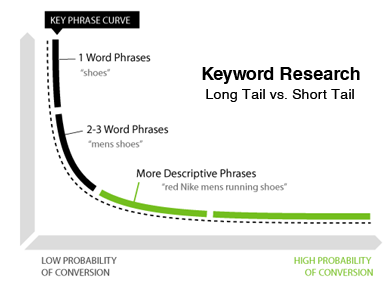Siri, Alexa, Google Home, Cortana… Bixby, there are more being added all the time. You’re probably familiar with these now household names, but do you know what they all have in common? They all employ voice-activated Artificial Intelligence technology, (AI), and more to the point of this blog, they are all changing the way people are searching for things on the internet.
If you rely on SEO (Search Engine Optimization), want to keep your website optimized, or if SEO is at the heart of your marketing strategy, read on for a break down of how this new wave of technology affects you, and why you need to be aware of “natural language” keyword phrases.
First, a background on keywords and how they help SEO
In the early dawn of Search Engine Optimization, and Digital Marketing strategies, Marketers began to embrace the significance of keywords as extraordinarily useful tools to better reach their specific audience.
What is a keyword in marketing? Keywords are specific words that help define the content surrounding it.
Why is a keyword important in marketing? Keywords are important because when a search engine (like Google) scans your content to determine if it is relevant to a searching user, it picks out these keywords to define your content. The query typed into the search engine has a predefined rule to connect to a result with related keywords.
In layman’s terms, a keyword is what you would use to help people fid what they are looking for , and have your content come up as a result. if a user is searching “Where to buy a boat cleaning kit”, and your keyword is “boat”, the search engine will probably offer your content to this user as a result. Maybe. Boat is a vey broad term. Millions of websites use it. Yopou’re going to need to get more specific. Keep reading.
In the past, there were always three main factors that an SEO Strategist needed to take into account when choosing their keywords. These factors included; Relevance, Competition, and Search Volume, and with the aid of tools like Google AdWords, marketers were able to better able to reach their target audience.
As these three factors are still relevant to us. Let’s take a closer look at them:
- Relevance: In relation to your audience. If your target audience is an audience who is interested in poetry writing, rhetoric, and line structure you may use the term Zeugma, for your web page on word play. This keyword may not have a high search volume, but my goodness, it is specific and relevant to your niche.
- Competition: This refers to the sheer number of other websites that are currently using this keyword. On Google AdWords, they will give your keyword a competition rating of low (meaning there is little competition, and you will probably rank high for it), or high (meaning there is a lot of competition and you will probably rank low). You can then best strategize what keywords will give you the best results!
- Search Volume: More simply, the volume of searches being made on that particular keyword. If you are trying to get your company found online you want to make sure that your keywords are actually being searched…otherwise, why bother?
The evolution of keywords to long-tailed keywords
In 2008, the internet was home to around 175-million websites, and half way through 2018, there now exist almost 2-billion. What does this mean for your website?
10 years ago, keywords helped your needle be found in a haystack. Today, however, finding your website is like trying to find a Sardine in the Pacific Ocean. In other words, it’s next to impossible without the right tools. For this reason, SEO Strategists have to make their keywords far more specific. And so began the long-tailed keyword.
What is a long-tailed keyword? A long-tailed keyword is a phrase containing two or more keywords to more effectively narrow the scope of search. In our previous example of a user’s search, “Where to buy a boat cleaning kit”, the single keyword “boat” does create a level of relevance to the search, but the user may also come across Antique Model Boat Kits. Not relevant at all. But since you sell cleaning kits, using a long-tailed keyword like “boat cleaning kit”, your company will be suggested to the user over other companies with less relevant keywords.
Natural Language Keyword Phrases : SEO for voice search
Let’s review: First, the single keyword helped your audience find you. Next, a few years later, the long-tailed keyword helped your audience better navigate the vastness of the internet and get you a more specific result…
Now what? We have now come full circle to voice activation: Siri, Alexa, Cortana, Google Home, and Bixby all have been the main driving force in the latest change in how we optimize our content for search. Because these voice activated technologies have assumed personalities, one of their main features is allowing us to converse with them using ‘natural language phrases’.
In turn, we are now searching the internet using very different language than the days that were driven by specific keyword search. The former senior vice president of engineering at Uber, Amit Singhal, puts it perfectly, explaining, “fundamentally, it’s the difference between ‘give me what I said’ and ‘give me what I want.”
Optimization for Natural Language: The average search engine user, (aka the user not jaded by knowing the inner workings of Google) will tend to search in a similar way to the way they would speak. More naturally. Get it? If searching for a site to explain, for example, what the average cheetah’s diet consists of, they will probably not search with the stilted language of “common cheetah diet”, but will probably search “what does a cheetah eat in a day?”
Much more natural.
Today, one of Google’s main search algorithms is designed to determine the context of the searcher’s query. Using Natural Language Phrase technology, it recognizes that users may not use the same words to find the same thing as the next user. And so Google is relating the context of the term searched with the context of your content.
The upshot of all this is that Google is no longer only matching keyword for keyword, but instead creating a dynamic and friendly search experience, with “like” search results!
Optimization for Natural Language in Voice Search:
If you learn nothing else in this article, please remember this: In SEO for voice search, semantics matter greatly! Much the same as before when talking about optimization for natural language search, we encourage you to keep the same points in mind when writing content with the aim of optimization for voice search.
The old way of ‘optimization’: Writing content that is awkward and stilted with the main goal of trying to fit specific keywords on a page. Aka. Black Hat SEO.
The new way of optimization: Writing your content to answer questions that your audience would be asking in their natural language. FAQ pages are probably the most readily available place to do this, as well as blogs. But also try to incorporate this type of rich content all over your site!
If you are wondering if you’re on the right track when trying to optimize your content for Natural Language Voice Search we’ve put together a quick checklist for you:
- Get Conversational: If your content language flows conversationally, it will match up with users queries all the more.
- Focus on long-tails: Long-tailed keywords haven’t been thrown out the window, we just have to realize that they are a tool in the process. So when using keywords within your content make sure to use whole phrases and vary the words with synonyms of the main keyword every once in a while. Remember: Semantics!
- Structure your content: Your content must be built with the structural integrity of being able to answer your audience’s needs and questions, and have the design of semantics flowing through your written language.
- Make yourself mobile: Never underestimate the power of making your site mobile friendly! We’re not only talking about site layout, although this is definitely a must. Also keep in mind that there is even more of a casual feel to searching for something on a mobile device as opposed to on a desktop. (this is the place where typed natural language phrases, and voice activation are really going to come into play)
Got all of that?
Do you need help building your social media or SEO? Don’t just tell it to Siri, talk to us today about ways we can help your search visibility.











